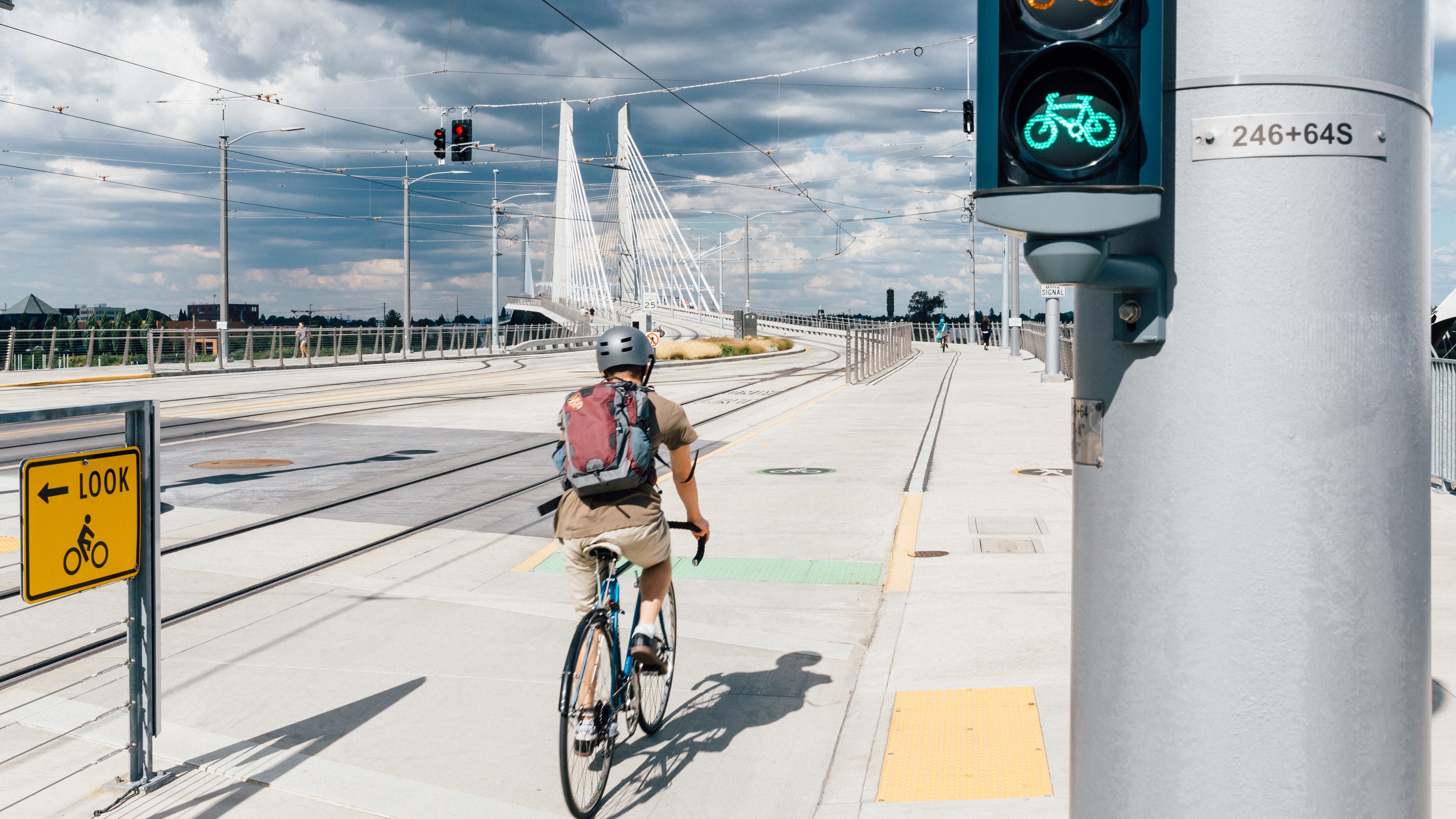Idaho is coming in hot.
While the Senate may be camped out in the Gem State this week, the House is taking a cue from it. Oregon's legislators passed the "Idaho Stop" bill Tuesday; once signed into law, it would allow cyclists to treat stop signs like yield signs.
The bill's nickname is a reference to the first state to adopt similar legislation.
Senate Bill 998 permits bicyclists to enter intersections controlled by either stop signs or flashing red signals without stopping completely, provided they yield lawful right of way to other approaching traffic. Sen. Floyd Prozanski (D-Eugene), a chief sponsor of the bill, said it only applies to bicyclists — so no changes for motorcycles, unicyclists, or scooters.
Bjorn Warloe, the Portland bike activist who first introduced the "Idaho Style" movement to Oregon, says it would allow cyclists to ride with less effort on more streets, "especially in towns that haven't created the network of neighborhood greenways that Portland has."
A similar "stop and go" bill was introduced in 2003, but didn't make it out of Senate committee; in 2009, Rep. Jules Bailey offered another iteration of the Idaho Stop, but was unsuccessful. A decade later, he says, legislators "have done a better job of setting expectations around the bill, and a better job of addressing legitimate concerns."
Once (mis)characterized as "cyclists blowing through stop signs," he adds, the bill is now explained as simply promoting street navigability for cyclists. That's an important distinction.
"Bicycles are very different than cars and they should be treated differently in statute," explains Jonathan Maus, cycling advocate and editor of Bike Portland. "This is a big step forward not just because of the law change itself, but because it shows bicycling as an issue in Salem has evolved… this bodes very well for future bicycle-related legislation."
The bill, which passed 21-8 in the Senate on June 18, now moves to Governor Kate Brown's desk.
